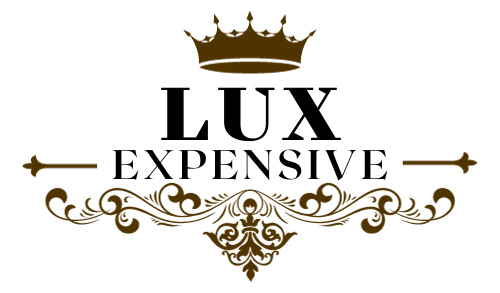Ferraris are expensive because of their limited production numbers, extensive manufacturing craftsmanship and testing, cutting-edge performance technology derived from racing, use of exotic lightweight materials, brand prestige as an automotive status symbol, and high levels of personalization available. The exclusivity, racing heritage, innovative engineering, and sheer performance capabilities all contribute to the astronomical pricing that ensures only wealthy elite buyers can afford these exotic Italian sports cars.
When it comes to supercars, Ferrari is undoubtedly an icon. With its prancing horse logo and screaming V8 (and V12) engines, Ferrari has built a reputation for making sports cars that offer extreme performance, captivating driving dynamics, and jaw-dropping styling.
Of course, such impressive vehicles come at an equally staggering price—we’re talking hundreds of thousands of dollars or more even for “entry-level” models. But why exactly are Ferraris so expensive compared to ordinary cars? Well, there are a number of factors that contribute to the massive price tags attached to these Italian exotics. Let’s count down the top 10 reasons you’ll pay a princely sum to own a Ferrari.
1. Limited Production
Ferraris are produced in very limited numbers, often just a few thousand units per year across the entire model range. Such low production allows the company to focus heavily on quality control and engineering for each vehicle rather than trying to churn out cars en masse.
But it also means the total number of cars they can sell is extremely restricted. Basic economics says lower supply usually leads to higher prices.
2. Race Pedigree
As any racing fan knows, Ferrari has dominated motorsport events like Formula One for decades. This racing pedigree and technology transfer from the track to the road cars in their lineup is a key part of the brand’s DNA.
Of course, all that racing success and R&D doesn’t come cheap—so buyers end up paying for the brand’s winning heritage with each new purchase.
3. Handmade Craftsmanship
A major appeal of an exotic car is the meticulous hand-built craftsmanship that goes into it. Unlike mass-market cars that are pumped out by robots on assembly lines, Ferraris are hand-assembled by master technicians.
They hand-stitch the leather interiors, delicately assemble the powerful engines, lovingly polish and buff each body panel—all customized for individual customers. This personal touch and attention to detail is labor-intensive and makes each car unique.
4. Cutting-Edge Technology
From advanced aerodynamics to state-of-the-art suspension systems, Ferraris bristle with Formula 1-derived technology designed for maximum performance. Brands invest heavily in R&D to push boundaries and introduce the latest innovations with each new model.
For example, features like rear-wheel steering improve handling but also raise costs compared to more standard cars.
5. Powerful Engines
What good is a supercar without a superior powerplant under the hood? Ferraris come equipped with massive, hand-assembled V8s and V12s that produce extreme horsepower while still meeting emissions requirements.
These high-revving engines are an integral part of the brand’s identity and enable its cars to achieve unbelievable speed with spine-tingling soundtracks. They’re also extremely complicated and expensive to produce.
6. Exotic Materials
Ferraris make extensive use of advanced, exotic materials like carbon fiber and composites to reduce weight and improve performance compared to metal components.
But these materials—also used in aerospace and Formula 1 applications—are much pricier than steel or aluminum and add greatly to production costs. However, they help achieve the remarkable power-to-weight ratios the brand is known for.
7. Rigorous Testing
Before any Ferrari model enters production, prototypes and pre-series cars undergo millions of miles of grueling testing on tracks and roads worldwide. This rigorous durability and development testing ensures that drivers can safely access the extreme performance these cars are capable of.
Each new system has to prove itself under punishing conditions, adding greatly to development costs.
8. Brand Prestige
For many wealthy buyers, exclusivity is hugely important. The prancing horse badge carries tremendous prestige and cachet in the automotive world as a symbol of status, luxury, and aspirational Italian design values.
There’s pride in owning an object that so clearly communicates one’s lofty economic status. Of course, Ferrari knows this and prices its cars accordingly as positional goods.
9. Dealer Network
Ferraris are sold through an authorized dealer network, not corporate-owned stores. Each dealer must meet stringent facility, sales, and service requirements set by the factory.
But in exchange for promoting and supporting the brand’s aura of luxury, they are allowed to set pricing on new car inventory. The lack of price controls means some speculative profit-taking on hot models is common.
10. Personalization Options
One factor that ramps up the cost of Ferrari ownership is the wide array of customization and personalization options available.
As bespoke vehicles built for each customer, various aesthetic choices are offered for things like paint colors, interior materials and finishes, badging and logos, stitching details—all of which add a percentage premium onto the car’s base price.
Is Ferraris a good brand?
Yes, Ferrari is widely regarded as one of the premier sports car brands in the world, known for exceptional engineering, racing dominance, high-end craftsmanship, and prestige.
Are Ferraris good?
Yes, Ferraris offer best-in-class performance, handling, luxury features, racing technology, exotic styling, and extreme attention to detail that makes them extremely desirable high-end sports cars.
Are Ferraris worth the price?
For wealthy buyers wanting an iconic luxury status symbol that provides extreme performance with bespoke customization, Ferraris are often considered worth their astronomical prices.
Where to buy Ferraris?
Where to buy Ferraris? New Ferraris must be purchased through the company’s strict authorized dealer network, which allows retailers to set pricing while upholding the brand’s high sales and service standards to maintain exclusivity.

